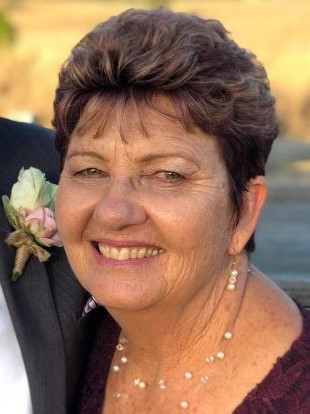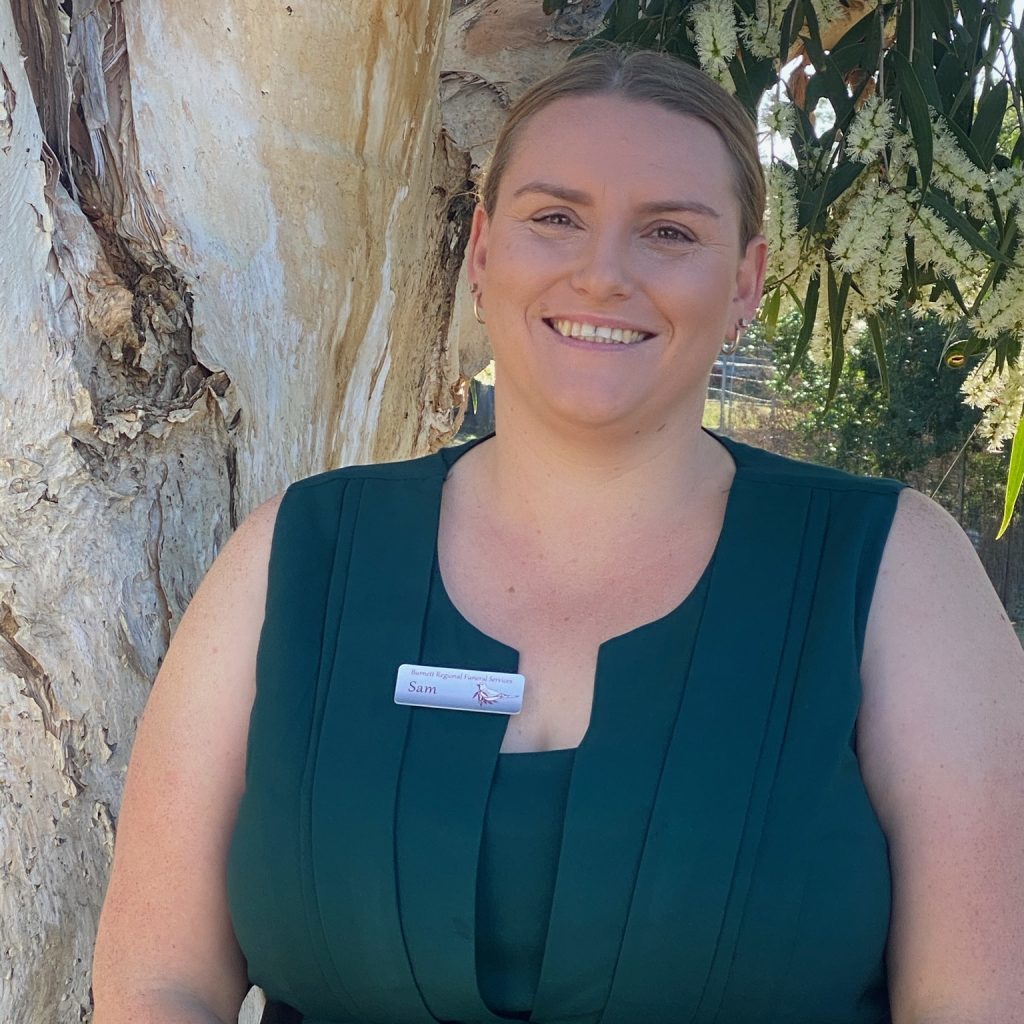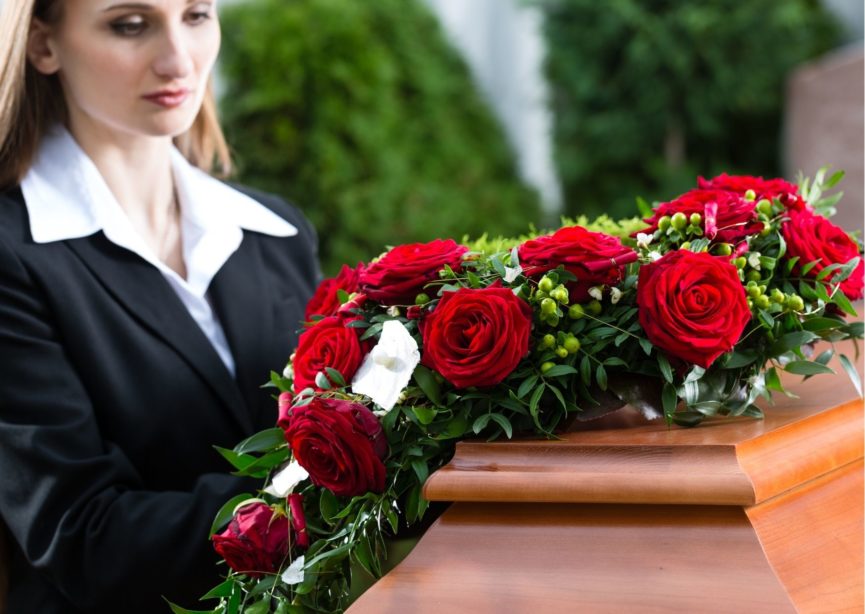What’s it like to be a funeral director?
When I tell people that I work for a funeral director, I’m always fascinated by the different responses I get. Your job is something that comes up in conversation frequently and so I have had a lot of time to ponder how people react and why. Recently I went to a new hairdresser. She asked me, “So, what do you do for a living?”. Me: “I work for a funeral director.” Her: “Oh…”
There is no one typical response when you tell someone you work in the funeral business. Some people, like my new hairdresser, fall into an awkward silence before trying desperately to change the subject. Others crack jokes, some of which are actually pretty funny, and some I have heard a million times before (like working in the ‘dead centre’ of town). Other people are genuinely interested about what I do and why, while others ask questions about death and the supernatural, or what my beliefs are about what happens when we die (I try to navigate around the latter question as tactfully as possible). On the whole, people are fascinated, even if it makes them feel a bit awkward.
A lot of people think that making a living out of death is a bit morbid, but honestly, most people I talk to have an immense curiosity about what it is like to be a funeral director, too. The thing is, death is a part of life. We all die. Now, I’m not a funeral director. Yes, I work for a funeral business, but I’m the marketing manager! That’s not to say that I don’t deal with the death side of the business – I do. I occasionally attend funerals, speak with grieving families, hand over the ashes of lost loved ones who have been cremated, and being involved in funeral arrangements is not out of the question if needed. Of course, I could just tell people that I work in marketing, but I find the different responses I get fascinating, and it often leads to me wondering why people are so uncomfortable with the idea of an individual or company that makes a living out of death when so many of them are curious about what it is we do.
A question that we get asked a lot is how do we cope with death all day, every day? It goes without saying that working as a funeral director can be emotionally challenging, and serving small, regional communities undoubtedly plays a role in this. Everyone knows everyone else in small towns, so it’s inevitable that sometimes we will have personal relationships in some form or another with the deceased people that come into our care. There are times where we are forced to confront our own mortality, too, particularly when we are caring for someone who has died in very tragic circumstances and their loved ones.
There is a flipside, though. As funeral directors, our whole team feels deeply privileged to do what we do. To be able to help a family celebrate a loved one’s life and send them off with dignity and respect is such an honour. We all have a deep sense of pride in the service that we provide and the fact that we are able to serve our community in this way, and that the families we work allow us to have the honour of serving them and walking alongside them in one of the hardest times of their lives.
It was important to me to give a broad perspective in this article, so I asked Fred and Shirley, the directors of Childers Woodgate Funeral Services share their experiences about life in the funeral business. Here’s what they had to say.

Fred Hampson – Co-director of Childers Woodgate Funeral Services
What made you become a funeral director?
I have life-long experience as a nurse and I see being a funeral director as an extension of the caring role that I have always played in people’s lives.
What do people say when you tell them you’re a funeral director and what is the most unexpected response you’ve had to your job?
“I thought you were a nurse/midwife!” Surprise. People are generally very positive and supportive and do have enquiring minds. “So you bring people into the world, and you take them out!”
What is the best part of the job?
Helping families through what is sometimes the most difficult time in their lives.
What is the worst part of the job?
Conducting funeral services for close friends and family, however, at the same time it is a privilege to be able to honour and acknowledge their lives have made. Unexpected deaths would be the hardest part for me.
What is your favourite memory related to being a funeral director?
Honouring returned service men/women who have made the ultimate sacrifice when serving their country. The camaraderie shown by the armed services is spine tingling in its precision, ceremony, and care/love.
How do you cope with preparing bodies for cremation or burial?
I see it as an opportunity to show care and respect to the deceased person.
How do you cope with the sadness of what you do?
I have faith that the Lord will take good care of them. Sometimes I cry. Sometimes I become reclusive. Sometimes I go fishing. But mostly I cuddle my wife and tell her I love her.
What makes the job worth it?
Having people acknowledge the effort that our team puts forward at every opportunity.
Why do you think so many people think that making a career out of death and talking about death is awkward?
Because death is awkward, it’s sad, it’s devastating, heartbreaking and none of us like to think about our own mortality. Not enough people plan for the future, which includes caring for your family and loved ones following your demise. Preparation for our own death is about planning, discussion with our loved ones and lightening the burden on your loved ones once you have passed away.
What qualities make a good funeral director?
Being able to listen to the significant others that are being directly impacted by the deceased’s passing. Empathy, caring, being well groomed and presented, excellent communication skills, being flexible, unflappable and being able to think on your feet, putting others first, resourceful, being aware of your weaknesses and asking for help and direction when needed.
What advice would you give to someone interested in becoming a funeral director?
Research is important, speak to reputable funeral directors and professional associations. Be prepared for phone calls at all hours and be prepared give your time freely and exclusively to someone who is obviously going through the toughest time of their life.

Shirley Hampson, Co-director
What made you become a funeral director?
At the time, we were looking for a business of our own and this opportunity came up so we thought we would give it a go. The business was very run down and had a bad reputation, hence why it was so cheap to invest in, although it has taken a lot of financial resources to rebuild. It was also around the time my father had passed away and I thought how much better we could have been at saying goodbye to him.
What do people say when you tell them you’re a funeral director and what is the most unexpected response you’ve had to your job?
Most of the people who know us well think it is a natural progression from our other jobs, ie. Fred as a nurse and myself as a Business Teacher. Others say, “well, I guess somebody has to do it!” Some friends say that we have life all stitched up – hatch, match and dispatch! Fred as a midwife, me as a wedding celebrant and then us as funeral directors! LOL
What is the best part of the job?
Being able to help people during their most vulnerable time.
What is the worst part of the job?
Watching people grieve. For me, it is gut wrenching and I always put myself in their shoes and think what it would be like.
What is your favourite memory related to being a funeral director?
This was a hard one as there has been no specific memory, but when I reflect on the funeral services I have done as a celebrant, it would be the one I did for a dear family friend when emotions were running very high, but the family were so supportive of me, even in their time of grief.
How do you cope with preparing bodies for cremation or burial?
I do not participate in this area of work.
How do you cope with the sadness of what you do?
Talk it through with Fred (who is a tremendous support) and indulge myself in the things I love the most, my family and my scrapbooking.
What makes the job worth it?
The feedback received from clients and of course, the opportunity to work for ourselves.
Why do you think so many people think that making a career out of death and talking about death is awkward?
Even though it is something that we will all face one day, it is not something that most people want to think about, let alone even talk about.
What qualities make a good funeral director?
Empathy, love of people in general, caring, flexible.
What advice would you give to someone interested in becoming a funeral director?
Prepare yourself – talk to other funeral directors, research, find the one thing that will stand you out from all others.

Sam Euler – Clerical Assistant
What made you become a funeral director?
I wanted to help people and give something different a try.
What do people say when you tell them you’re a funeral director and what is the most unexpected response you’ve had to your job?
A surprised look on their face and always the question – “do you have to see/dress the deceased?”
What is the best part of the job?
Assisting families through a difficult time and trying to make the funeral arranging a smooth process for them.
What is the worst part of the job?
The emotion and circumstances of death.
What is your favourite memory related to being a funeral director?
The genuine thanks that people give us for being a part of such a difficult time.
How do you cope with preparing bodies for cremation or burial?
This isn’t a part of the business that I’m involved with.
How do you cope with the sadness of what you do?
I hug my family extra tight each night.
What makes the job worth it?
Knowing you’re helping someone going through a difficult time and being able to help them as much as we can through our roles.
Why do you think so many people think that making a career out of death and talking about death is awkward?
Because no one wants to think about death and losing loved ones.
What qualities make a good funeral director?
You need to be honest, reliable, organised, be flexible enough to be able to personalise each service, have empathy and have good quality equipment.
So, there you have it – some insight into the life of a funeral director and what it is like to work in this industry. Do you have any other questions? We’d love to answer, so head over to our Facebook page, Twitter or Instagram and leave your comments so we can reply.

